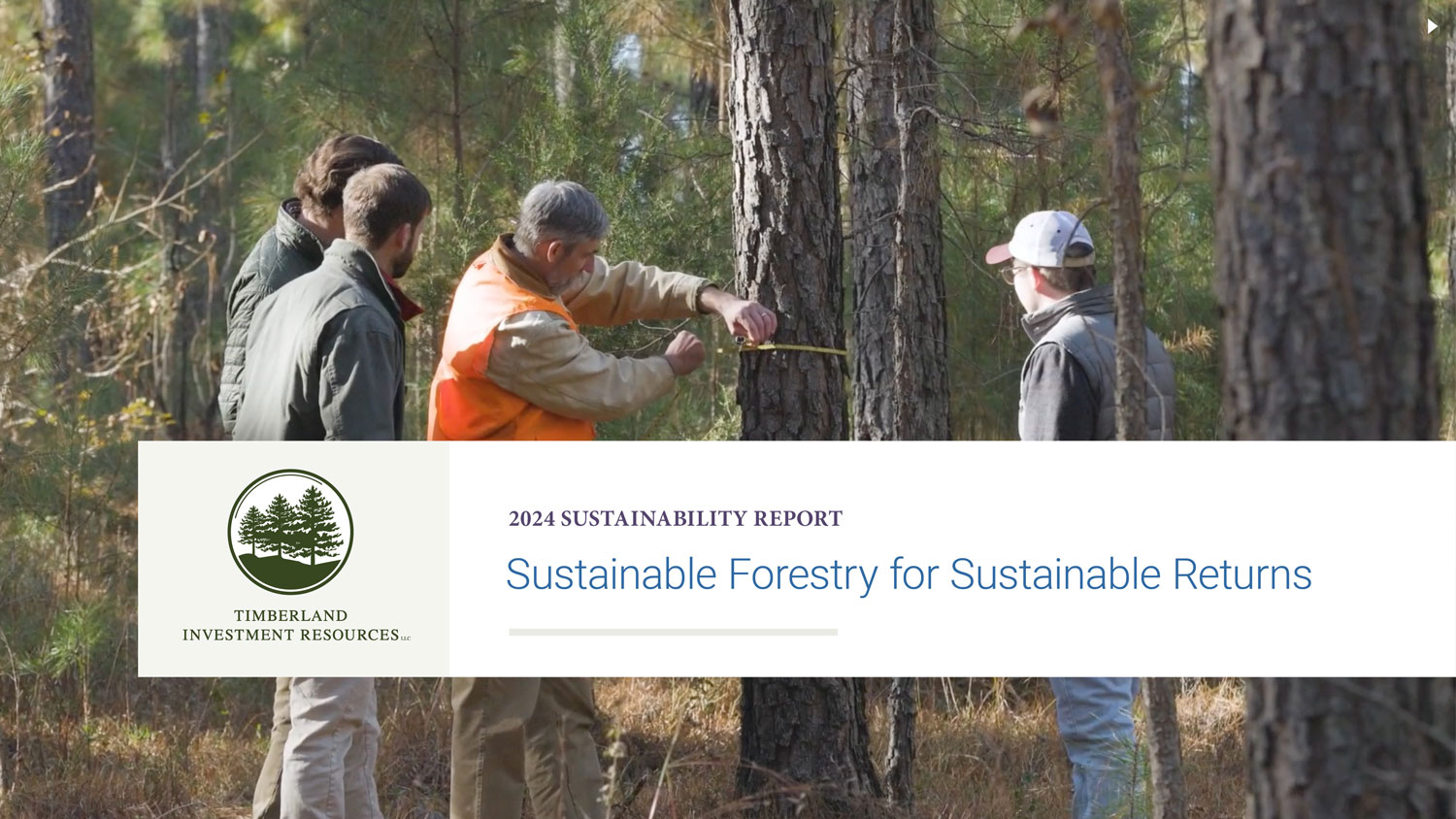Environmental Sustainability and Land Stewardship
At TIR, we believe good stewardship is good business. We understand that when we are recognized by those who have an interest in our activities as having a strong land ethic, our ability to practice forestry, conduct forest operations and collaborate and partner with key stakeholder groups, like mainstream conservation organizations, is significantly enhanced. This not only facilitates the day-to-day work of our team, it also improves our ability to manage our clients’ assets in accordance with their short- and long-term risk and return objectives.
To us, sustainable forest management means, among other things:
Respecting and maintaining biodiversity and site productivity
Protecting each forest’s air, water, soil and wildlife attributes
Regenerating lands after timber harvests
Achieving our investment objectives while building and sustaining forest ecosystems
We operate in accordance with these principles by employing scientifically-based practices that are responsive to society’s needs. In addition, our forest management plans fully comply with all state “Best Management Practices” (BMPs) to ensure the protection of soil and water quality. We also utilize land management strategies that have been proven to prevent erosion and runoff, preserve biologically sensitive areas, and protect and enhance wildlife habitat.
Beyond our approach to practicing forestry, we also participate in land conservation initiatives that reflect society’s interest in the environmental, cultural, historical, aesthetic and broadly encompassing economic values of private forests. This often entails working closely with governmental agencies and private conservation groups.
Sustainability Reports and Documents
Sustainability Report 2024
TIR is excited to share its third annual Sustainability Report, Sustainable Forestry for Sustainable Returns. This report highlights Timberland Investment Resources’ structured process of identifying and assessing the material sustainability factors in its investments and operations.
Learn more: Sustainability Statement
Previous Reports: 2023 Sustainability Report
Sustainable Forestry
Finally, TIR consistently operates clients’ forests in conformance with the stewardship priorities and sustainability principles of the organizations profiled below.





Hunting and Recreational Leases
TIR issues hunting leases and recreational leases on many of the lands it manages. For information on the program, or to identify lands that are available for lease, please visit Premier Hunting Leases, TIR’s leasing partner.
Sustainable Finance Disclosure Regulation
The European Commission adopted a package of measures on sustainable finance in May 2018. One component of this package is the Sustainable Finance Disclosure Regulation (“SFDR”) which aims to standardize disclosure requirements on how financial market participants integrate environmental, social and governance (“ESG”) factors in their investment decision-making and risk processes.
TIR is committed to operating in accordance with its Sustainable Forestry Policy once an investment in the timberland asset class is made. Prior to making any decision to invest in a timberland asset, a review of the potential acquisition is performed as part of the due diligence process. However, there is no systematic process for assessing any adverse impacts of investment decisions on broader sustainability factors, given that any investment is made with a view to ensuring the day-to-day management of the forest is carried out sustainably. In terms of sustainability risks, TIR considers relevant financial and non-financial risks during the initial stages of the investment decision making process. Given the nature of investing in forestry, risks relating to environmental factors are taken into consideration in the due diligence phase prior to making an investment decision. In addition, the remuneration policy has been designed to ensure that employee compensation is consistent with and promotes sound and effective risk management; does not encourage excessive ESG-related risk taking; includes processes to avoid conflicts of interest; and is in line with the firm’s business strategy, objectives, values and long-term interests.
At the product level, for any TIR funds disclosing under Article 8 or Article 9 of the SFDR, TIR has published the following website disclosure statements.



